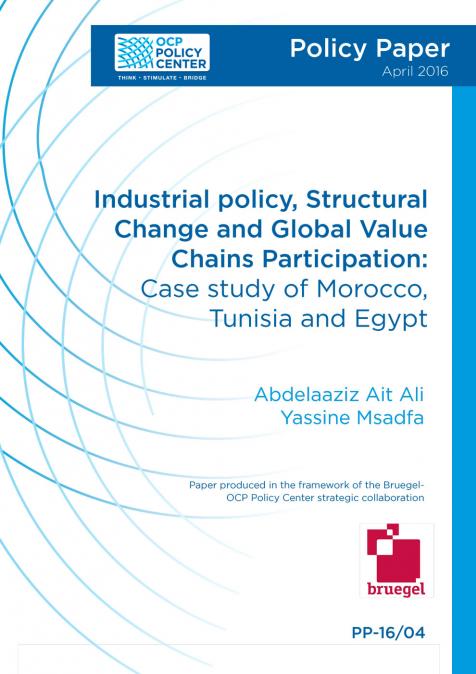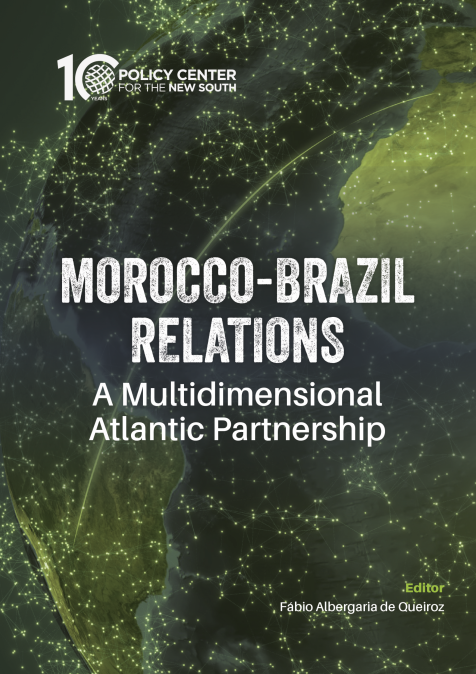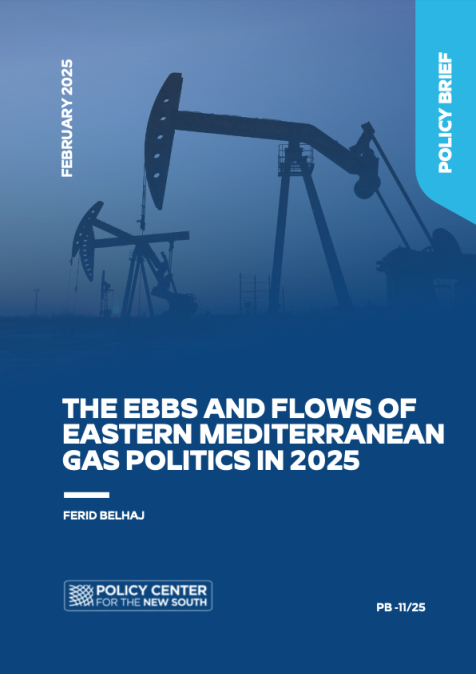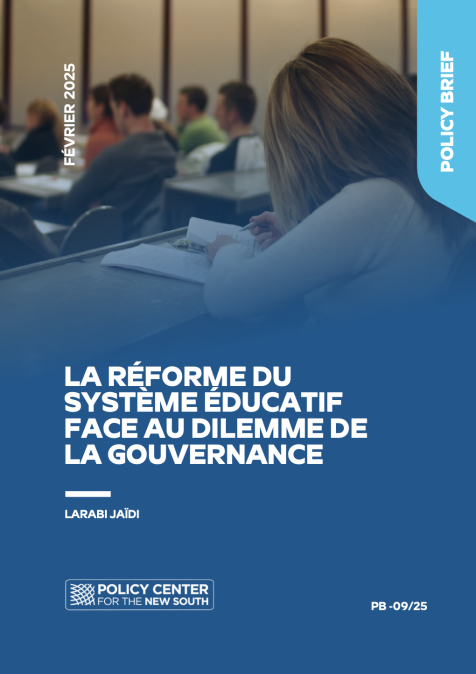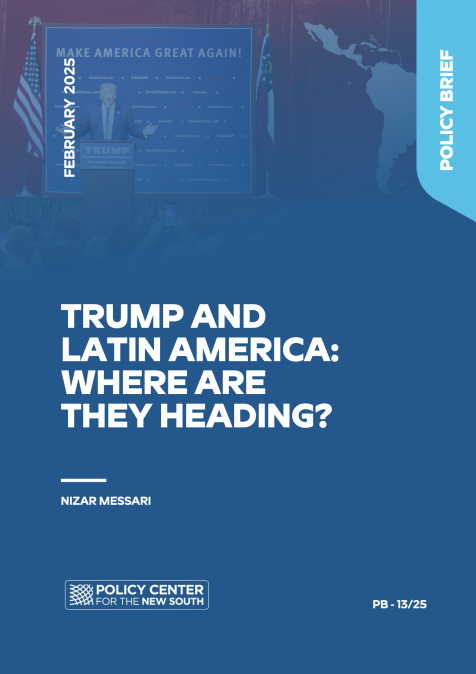Publications /
Policy Paper
Morocco, Tunisia and Egypt (such as many other developing countries) have always considered pro-active industrial policies as an important means to upgrading their manufacturing sector. In an era of premature deindustrialization, the manufacturing sector is expected to promote structural change and economic convergence allowing job creation.
On this basis, this paper thus analyzes the pace of structural transformation for the three North African countries in the last decade using two approaches. First, this study analyzes labor reallocation between five sectors of the economy and assess to what extent this movement contributes to the overall productivity growth. The second approach applied in this study is related to the construction of new measures for exports performance, quality and variety dimensions. Results show that for the case of Morocco and Tunisia, performances are comparable with a reallocation effect that was positive and contributed to 18% and 21% respectively to overall productivity growth, driven mainly by services that were able to create more and more employment in parallel with an increase in their efficiency as measured by productivity gains. However, Morocco has witnessed a productivity growth around 3.7% per year in average while in Tunisia the performance is well below, rounding up to 1.7%. For Egypt, the period 1999-2008 experienced a negative contribution of the reallocation effect to overall productivity growth, meaning that the labor factor was moving from high productivity sectors to low productivity sectors. Horizontal policies related to exchange rate management and monetary policy could be the factors to blame for this growth-reducing structural change. In addition, the increased reliance on natural resources could have compromised the reallocation of labor between low to high productivity sectors. For the quality index, it seems that not much improvement has been noted in the 2000s for the three countries, even for industries targeted by the policy makers in each country. For the variety index, the overall performance of the three countries has improved steadily in the last decade, but driven mainly by classic sectors such as textile or food and tobacco. The manufacturing sector in general in these countries has known a shrinking contribution to wealth and employment creation. The deindustrialization process could be overcome through increased integration in global value chains (GVC). Taking full advantage of the changing landscape of the production systems and networks may allow North African countries to accelerate their structural change and enhance their manufacturing sector. These countries are increasing in fact their participation in the GVCs. The challenge for each economy in this case is the capacity to upgrade and climb up the GVC ladder from low value added to high value added activities. At a starting point, it could be enough for a country to integrate the GVC in low value added activities, which is apparently the case for these countries, but beyond a certain level, these economies must aim to climb the GVCs ladder and move away from low value added activities. Describing the right ingredients for any industrial policy is, in the authors’ point of view, the best way to deceive, but economists agree on the importance of upgrading the logistics and infrastructure framework, which are relevant to keep the economy competitive and highly anchored to international markets. In addition, a success in climbing the GVC ladder is contingent on capacity to ensure the supply of skilled labor to leverage the challenge and move the economy to high value added activities. Active interventions in selective sectors is not enough to build a strong manufacturing sector and a competitive economy. A “policy mix” between vertical and horizontal policies is to be kept in mind. Maintaining a sound macroeconomic framework is also crucial, especially regarding monetary policy decisions, exchange rate movements and the fiscal policy stance.

